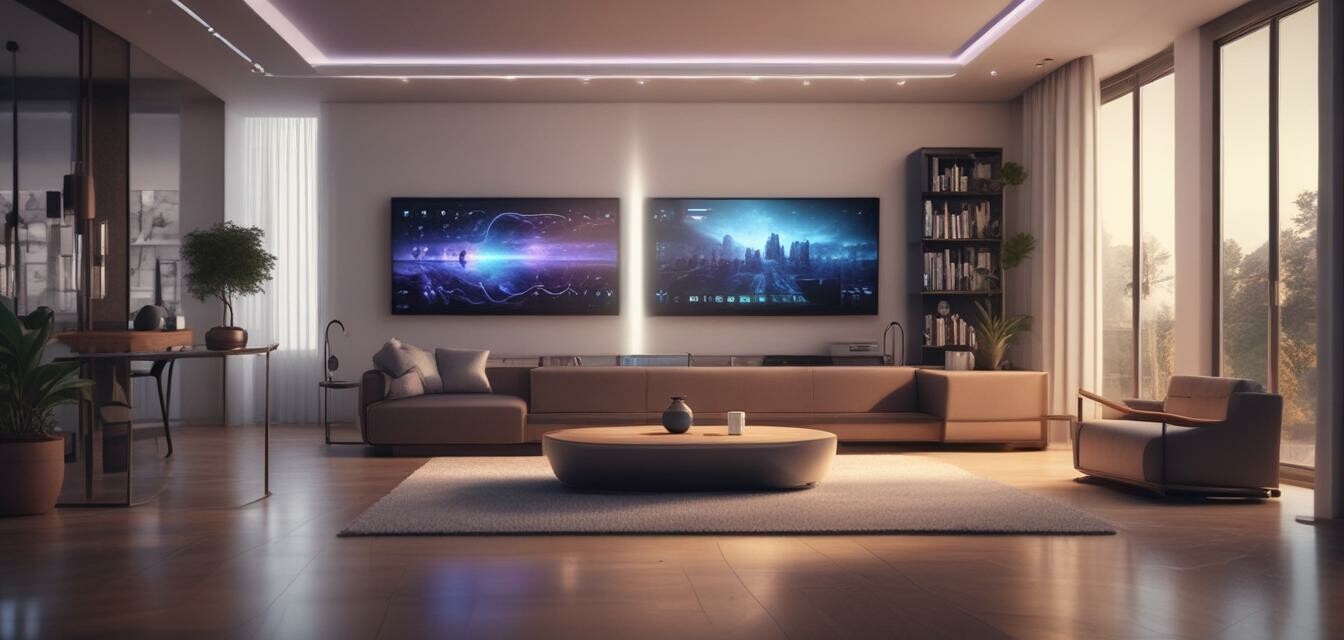
The Future of Smart Home Automation: Predictions for 2025
Key Takeaways
- Growth in AI-driven smart home technologies.
- Increased integration of smart devices for seamless experiences.
- Focus on sustainability and energy efficiency.
- Enhanced security features through advanced technologies.
- Expansion of smart home compatibility across different brands.
The world of smart home automation is evolving at an unprecedented pace. As we look ahead to 2025, experts predict a dramatic transformation in how we interact with our living spaces. This article will explore these exciting predictions and give you a glimpse of the future.
1. The Rise of AI-driven Automation
Artificial intelligence (AI) is set to play a pivotal role in the future of smart home automation. By 2025, we can expect:
- Smarter predictive algorithms that learn user habits.
- Enhanced voice recognition systems for seamless interaction.
- Integration of personal virtual assistants across multiple devices.
2. Seamless Interaction Across Devices
As technology advances, compatibility between devices will become increasingly important. We anticipate:
- Wider adoption of IoT within smart homes.
- Interoperability protocols to bridge different brand ecosystems.
- Unified apps for controlling all smart devices from one interface.
3. Sustainability and Energy Efficiency
The focus on sustainability will influence smart home innovations. Key predictions include:
- The development of energy-efficient devices.
- Smart appliances that optimize energy consumption based on real-time data.
- More smart home technologies that contribute to green living.
4. Enhanced Security Features
As concerns about safety continue to rise, smart home security will advance significantly. Expectations include:
- AI-powered surveillance systems for real-time monitoring.
- Biometric authentication methods for securing devices.
- Smart locks with remote access and monitoring features.
5. Increased Collaboration Among Brands
The fragmented smart home market is expected to see shifts towards collaboration. By 2025, we hope to witness:
- Partnerships between major tech companies for compatibility.
- Shared platforms for developing cross-brand smart devices.
- Industry standards facilitating a cohesive smart home experience.
Future-proofing your smart home
As these predictions unfold, it's essential to stay informed and ready to adapt. Here are a few tips to maintain a future-proof smart home:
- Invest in devices with open-source or compatible systems.
- Stay updated with technology trends and product releases in News and Trends.
- Consider energy usage and efficiency in every purchase.
- Prioritize security features when choosing new devices.
Conclusion
The future of smart home automation is bright and full of possibilities. As consumers, we can expect our homes to become more responsive, secure, and eco-friendly. By staying ahead of these trends, we can better equip our homes for the years to come.
Pros
- Greater convenience and comfort in daily life.
- Increased energy efficiency leading to cost savings.
- Improved home security and peace of mind.
- Flexibility to adapt to new technologies as they emerge.
Cons
- Possible compatibility issues among different brands.
- Potential security risks associated with smart devices.
- Initial investment cost may be high.
- Continuous updates may be necessary to keep devices functional.
Explore More About Smart Home Automation
To further understand the implications of smart home automation, feel free to check out our other articles:


